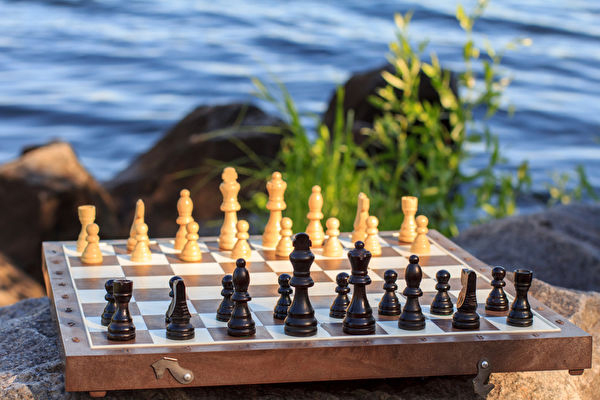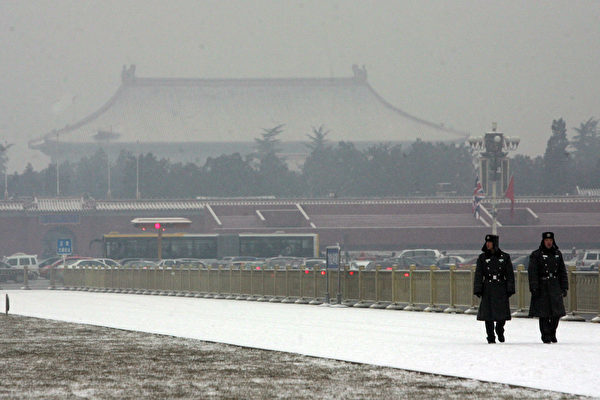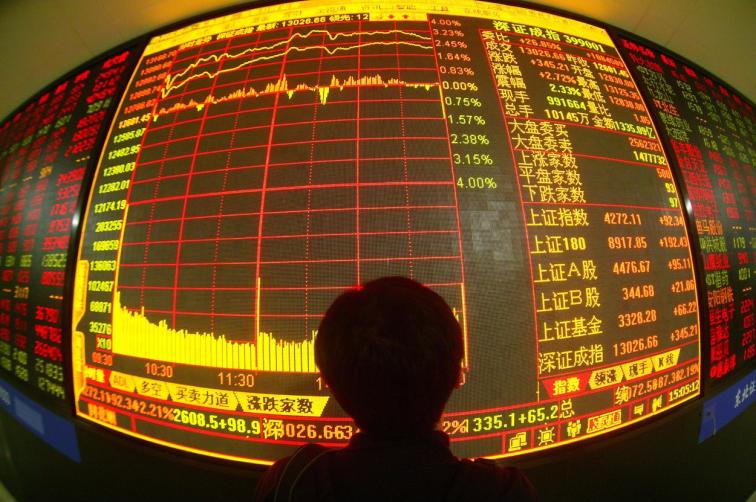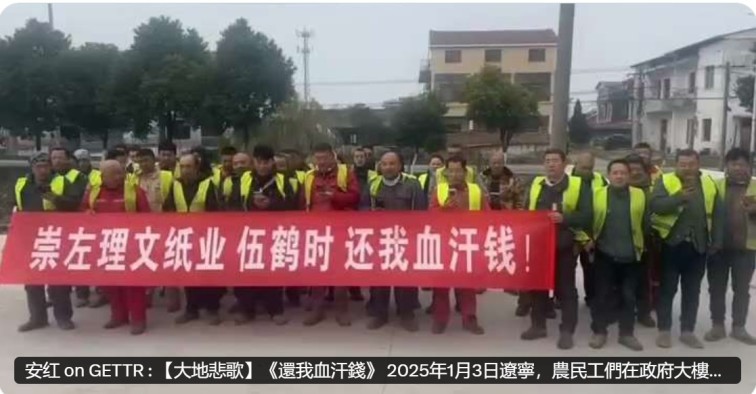A Scene from a CCP Meeting: The Chairperson on Stage Speaks in a Droning Buzz, Perfect for Helping Me Fall Asleep. (Guang Niu/Getty Images)
People News - Sun Zhengcai Ultimately Failed to Achieve "Glorious Leadership"
In earlier years, Sun Zhengcai, the former Party Secretary of Chongqing, was touted as Jiang Zemin's designated successor for the CCP's sixth generation of leadership. He was groomed and promoted by Jiang faction stalwarts Jia Qinglin, Liu Qi, and Zeng Qinghong. In 2018, Sun was sentenced to life imprisonment for bribery.
Before his downfall, Sun's peculiar habits included secretly consulting a fortune teller via his mistress to don a dragon robe, fantasizing about becoming the Party's General Secretary. However, his greatest obsession was playing the Tencent-developed mobile game Honor of Kings.
Sun's love for the game was no ordinary pastime; it became a full-blown addiction.
On several occasions, he delayed meetings because he refused to exit his car until a game round was finished, leaving many waiting for him. Even in his office, when his secretary knocked on the door to inform him of visitors, Sun would ignore them if he was engrossed in the game. Subordinates who disrupted his gaming and caused him to lose would face his wrath.
Although his staff harbored resentment, they dared not complain and instead maintained a facade of servitude, catering to his whims. Some sycophants even used Honor of Kings as a way to curry favor and gain promotions.
Public opinion mocked Sun, labeling him the "leader most addicted to Honor of Kings," as nothing was more important to him than the game's outcome. Yet, the game failed to bring him glory or elevate him to "kingly" status. Instead, he ended up a prisoner in the CCP's internal power struggle.
Gu Junshan: The Wolf Breeder
Gu Junshan, a former deputy head of the PLA General Logistics Department, was another notorious figure. In August 2015, he was convicted of corruption, bribery, embezzlement, abuse of power, and other crimes, receiving a suspended death sentence.
On January 12, 2013, late at night, Gu’s family home in Dongbaicang Village, Mengke Township, Puyang City, Henan Province, was raided. Investigators from the PLA Military Procuratorate, supported by over 20 armed officers from the Puyang Armed Police Detachment, formed two long rows to transfer evidence. Boxes of military-specialty Maotai liquor were passed down a human chain to two green military trucks parked outside. Other confiscated items included a giant golden boat symbolizing "smooth sailing," a gold basin signifying "prosperity," and more. In Gu's 30-meter-long underground cellar, crates of high-end liquor were piled up like a mountain.
The entire raid took three days and two nights. The items filled four military trucks. To avoid public attention, officials conducted the operations discreetly, working only at night.
Gu was obsessed with breeding Tibetan mastiffs and wolves. Reports stated that Gu was arrested at a villa in Beijing's Changping District, constructed specifically for him by a logistics department officer. The villa’s courtyard housed dozens of Tibetan mastiffs, while the surrounding moat contained wolves.
When authorities came to arrest Gu, a dramatic standoff ensued. Special forces were deployed, but over 100 armed soldiers from the logistics department surrounded them, preventing their approach. Meanwhile, Gu’s Tibetan mastiffs attacked the special forces. It was only after the Central Military Commission intervened and ordered the soldiers to stand down that the special forces were able to proceed.
To distract the animals, local villagers were enlisted to lure the mastiffs and wolves away, allowing the special forces to storm the villa.
Inside, they found Gu along with the officer responsible for building the villa and four prostitutes. The villa also had a 200-meter-long tunnel filled with stacks of cash and a secret room similarly packed with money.
Gu’s Tibetan mastiffs and wolves were cared for by a dedicated staff. The wolves were fed live chickens and sheep three times a day to maintain their hunting instincts. If live prey wasn’t available, they were given only the freshest meat, delivered daily from specialized farms. Gu was willing to spend tens or hundreds of thousands of yuan for a desirable mastiff, wolf pup, or live prey, even deploying military vehicles for transportation. "Even humans didn’t receive such treatment," some remarked.
Guo Boxiong and His Feng Shui Cannon
After Xi Jinping ascended to power and launched his anti-corruption campaign targeting senior military officials like Xu Caihou, Guo Boxiong, another vice-chairman of the Central Military Commission, began to sense imminent danger. In 2013, under the guise of leisure, Guo visited various renowned temples, including the Shaolin Temple in Henan, seeking advice from so-called "feng shui masters" for protective "secret methods."
Guo’s daughter-in-law, Wu Fangfang, was a strong believer in feng shui. She specifically sought out a "highly effective" feng shui master recommended by insiders to predict Guo's fate. The master, after analyzing the situation, reassured her that "the old man is under divine protection and will be fine." However, the master added a few cryptic warnings, prompting Wu to invite him to Guo's ancestral gravesite in Liquan County, Shaanxi, to assess the feng shui.
As the anti-corruption crackdown closed in, Guo and his wife secretly returned to their hometown in Zhangze Village, Shaanxi. They brought in a renowned Taoist from Louguan Terrace to perform rituals at the family’s ancestral tombs in hopes of warding off misfortune. Late at night, a small group gathered at the tombs to burn incense, wield swords, draw talismans, and chant incantations in a bizarre and clandestine ceremony.
A vice president of the National Defense University reportedly spent 6 million yuan on a high-quality jade piece for Guo. Guo had a master engraver carve it into a grand seal, which was then taken to a Taoist temple for a day and night. Whatever rituals were performed there, the seal was brought back and dubbed the "Dragon-Suppressing Seal," believed to have the power to subdue the "upper dragon" (referring to Xi Jinping).
As rumors swirled and pressure mounted, Guo followed the feng shui master’s advice and set up a "feng shui cannon" at home. The cannon was adorned with red cloth, and Guo would frequently chant incantations toward it, believing it would counteract the "calamities" emanating from Zhongnanhai (the CCP leadership compound).
Ultimately, Guo Boxiong's feng shui cannon failed to deflect the "central investigation." On July 25, 2016, Guo was convicted of bribery by a military court, sentenced to life imprisonment, stripped of his political rights for life, and had all his assets confiscated. His military rank of general was also revoked.
Ironically, Guo’s attempts to evade accountability through superstition backfired. As one netizen remarked:
"In this world, good and evil are repaid accordingly. Seeking to avoid justice through superficial devotion to spirits is futile; true divine powers would never permit it. In reality, what these corrupt officials worship are evil forces, as only demons would exchange protection for immoral deeds. The CCP officials' so-called prayers to gods and spirits are nothing more than deals with devils, devoid of any genuine reverence for divinity."











News magazine bootstrap themes!
I like this themes, fast loading and look profesional
Thank you Carlos!
You're welcome!
Please support me with give positive rating!
Yes Sure!